Awards
In this section, you can find more information about the different prizes and awards granted to our group members.
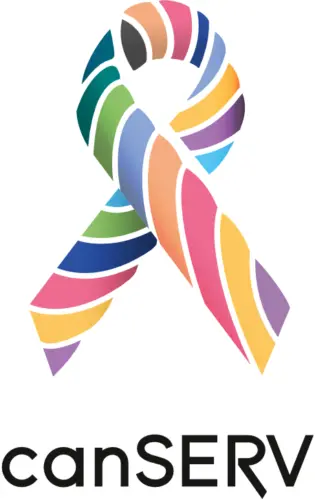
Lucia Coppo Awarded EU-OPENSCREEN Grant
We are proud to announce that Lucia Coppo, researcher in our group, has been awarded a grant from EU-OPENSCREEN under the canSERV initiative for her proposal “Search for novel, specific, small-molecule inhibitors of human CxxC/S-type glutaredoxins”. This project aims to identify new small-molecule inhibitors targeting human glutaredoxins, proteins involved in redox regulation and linked to cancer biology.
The grant was approved by the canSERV Consortium, which provides access to cutting-edge services and resources to accelerate cancer research across Europe. EU-OPENSCREEN is a leading European infrastructure for chemical biology and screening, supporting innovative drug discovery efforts.
Lucia is joined by Axel Scholz, medical student in our group, as co-applicant.
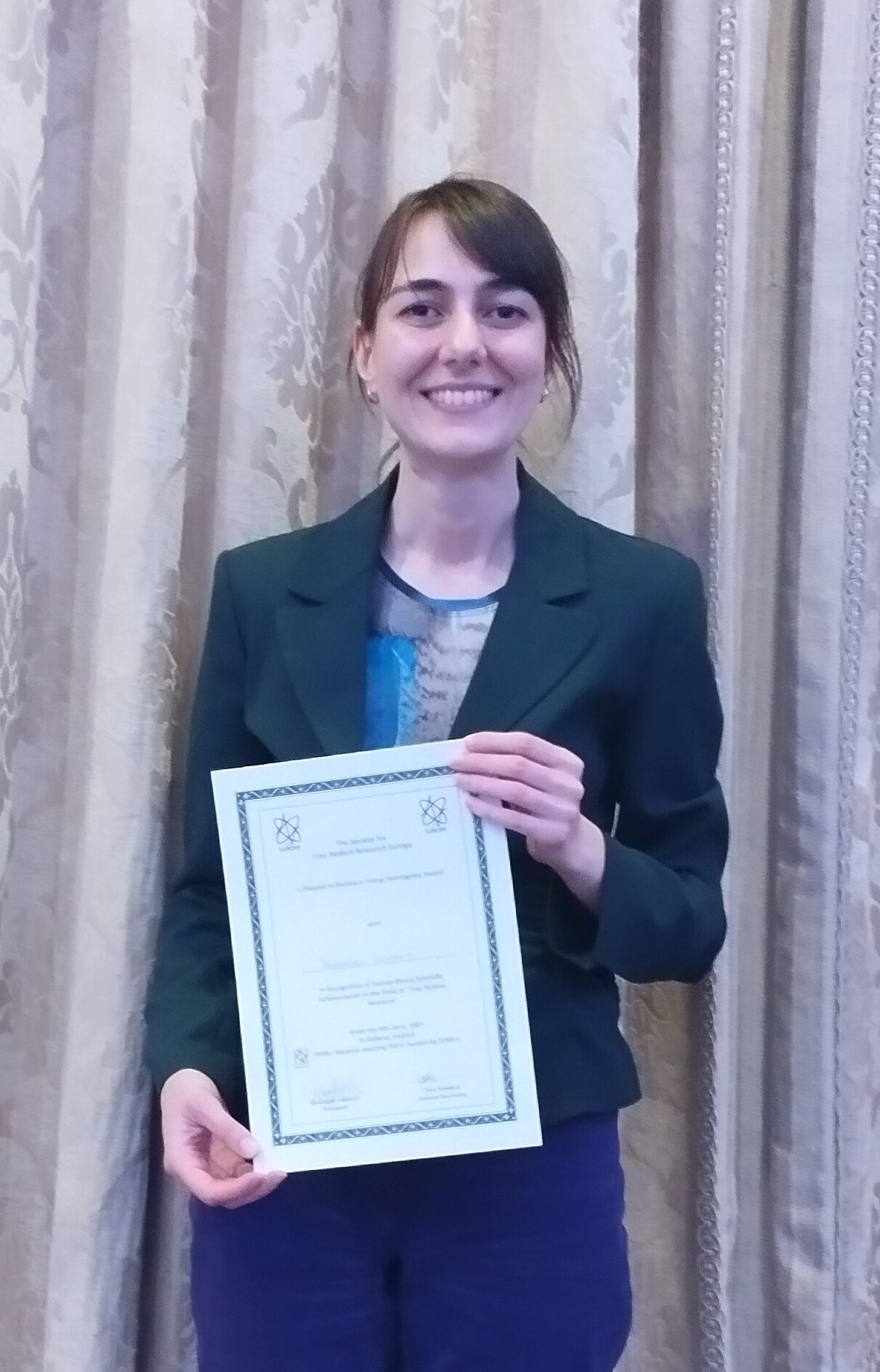
SFRRI 2025 Young Investigator Award
We are thrilled to announce that Radosveta Gencheva has been honored with the Young Investigator Award by the Society for Free Radical Research Europe (SFRRE). The award was presented at the 2025 SFRRI Meeting held in Galway, Ireland, earlier this June.
Radosveta received the award in recognition of her outstanding flash talk and poster presentation titled “Cell cycle arrest by short exposure to the thioredoxin reductase inhibitor TRi-1.” Her work highlights novel insights into redox regulation and cancer cell cycle control, contributing to the broader understanding of redox-based therapeutic strategies.
Congratulations to Radosveta on this well-deserved recognition of her innovative research!

SFRR-E Young Investigator Award 2024
Karoline Scholzen, a Ph.D. student in our lab, has been honored with the prestigious Young Investigator Award by the Society for Free Radical Research-Europe (SFRR-E). This award recognizes her extraordinary scientific achievements in the field of “Redox Biochemistry: Cellular Responses and Disease Relevance.”
Karoline’s award-winning presentation, titled “Understanding single cell redox signaling to decipher heterogeneous cellular responses,” was a highlight at the FEBS 2024 Advanced Course on Redox Biochemistry, held in Spetses, Greece, from September 30 to October 6, 2024.
As part of this recognition, Karoline has been invited to give a talk at the SFRRI meeting in Galway, scheduled for June 2025. This opportunity underscores the importance of recognizing high-quality work in advancing scientific knowledge and innovation.
We congratulate Karoline on this well-deserved recognition and look forward to her continued contributions to the field.
For more information about the award, visit the SFRR-E website.
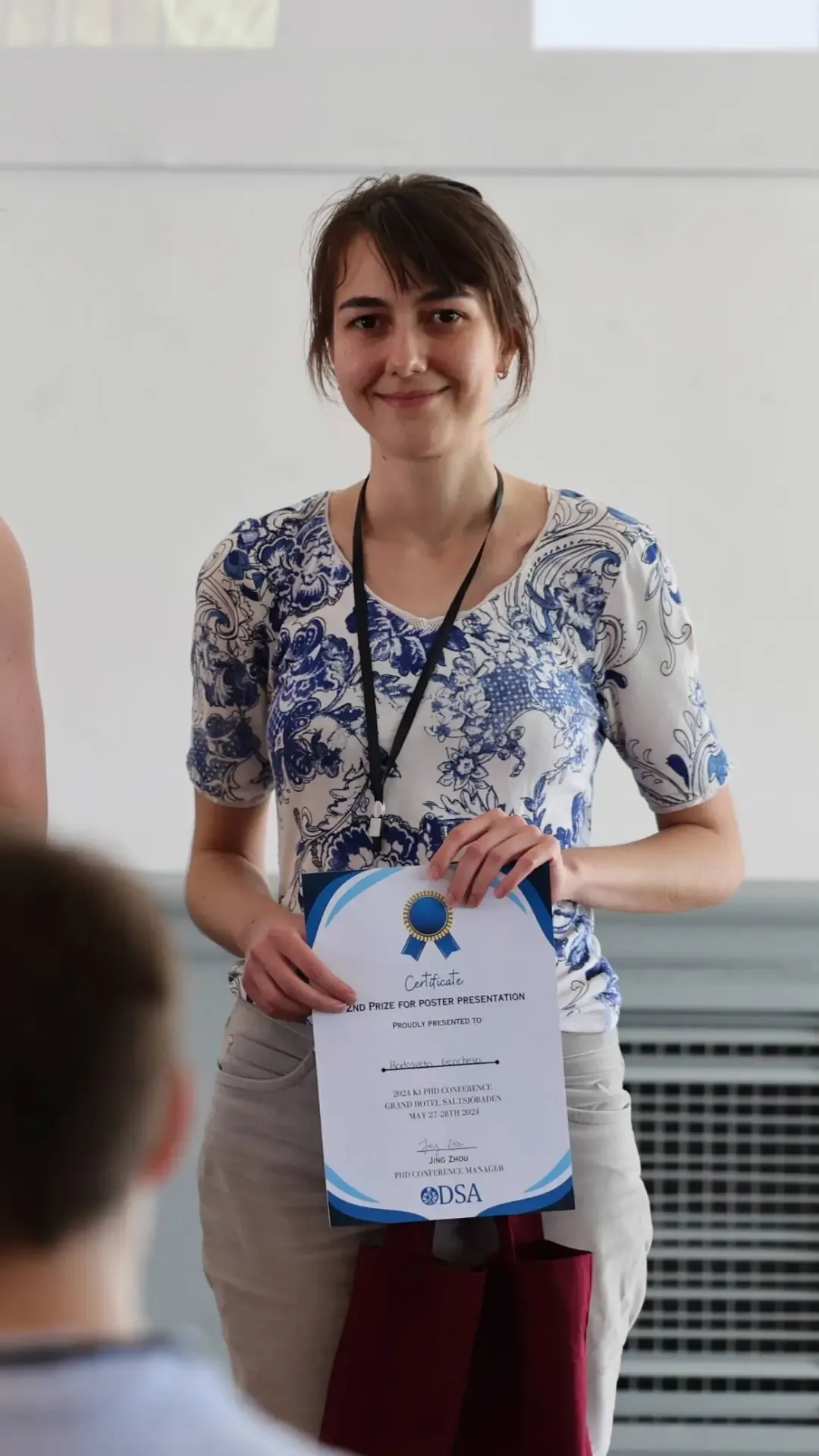
DSA PhD conference 2024 poster prize
In May 2024, the Doctoral Student Association at Karolinska Institutet celebrated its PhD conference in the picturesque Salsjöbaden, Sweden. Radosveta Gencheva, a PhD student in our research group, was recognized with the second award for her poster presentation. Her exceptional work received praise and recognition from her peers and the scientific community.
We congratulate Radosveta on her well-earned recognition and look forward to her continued contributions to the scientific world. We are proud of her achievement and the role our group plays in nurturing emerging scientific talent.
If you want to know more about the price and other activities organized by DSA, visit their website.
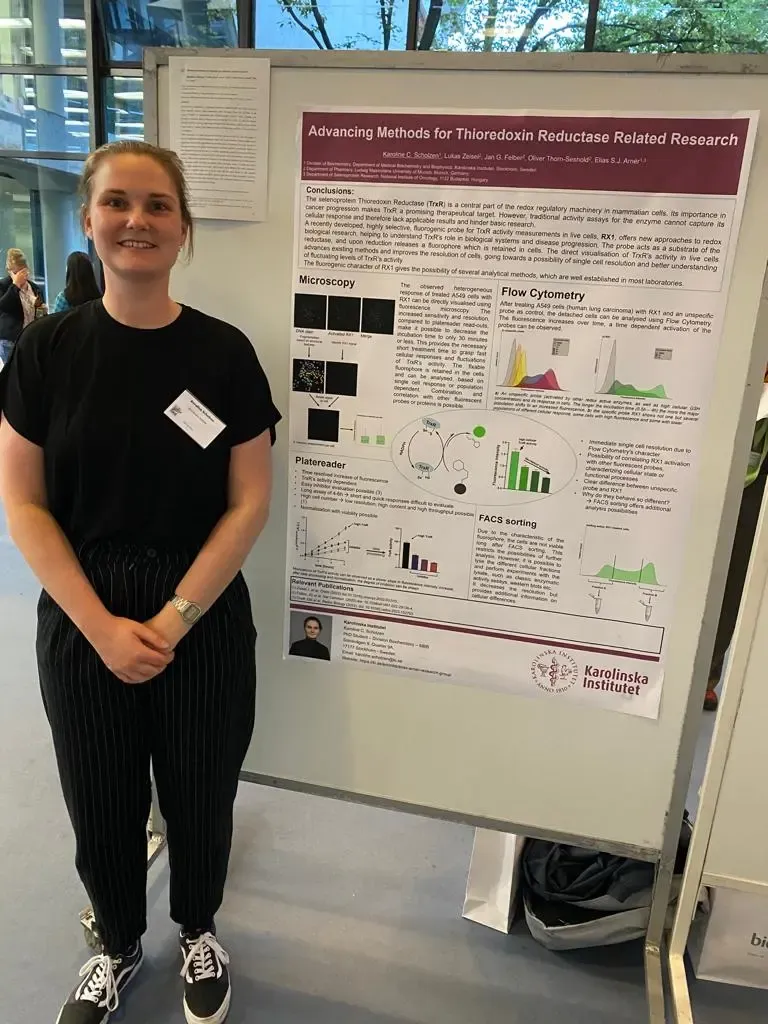
GMS Annual Meeting 2023 poster prize
We are thrilled to announce that Karoline Scholzen, a Ph.D. student in our group, has been awarded the Best Poster Prize at the 37th Annual Meeting of the German Society for Minerals and Trace Elements (GMS). The event took place from August 31 to September 2 in Berlin, Germany.
Karo's poster, titled "Advancing Methods for Thioredoxin Reductase Related Research", introduced the innovative use of the novel RX1 probe for determining TrxR1 activity in living cells. This breakthrough method allows for the measurement of TrxR1 activity in intact living cells, a feat that was previously unattainable. This advancement opens up numerous applications in the field of redox biology and cellular research.
We are incredibly proud of Karo's achievement and look forward to seeing how this award will further her research and professional development. Congratulations, Karo!
For more information, visit the GMS website.
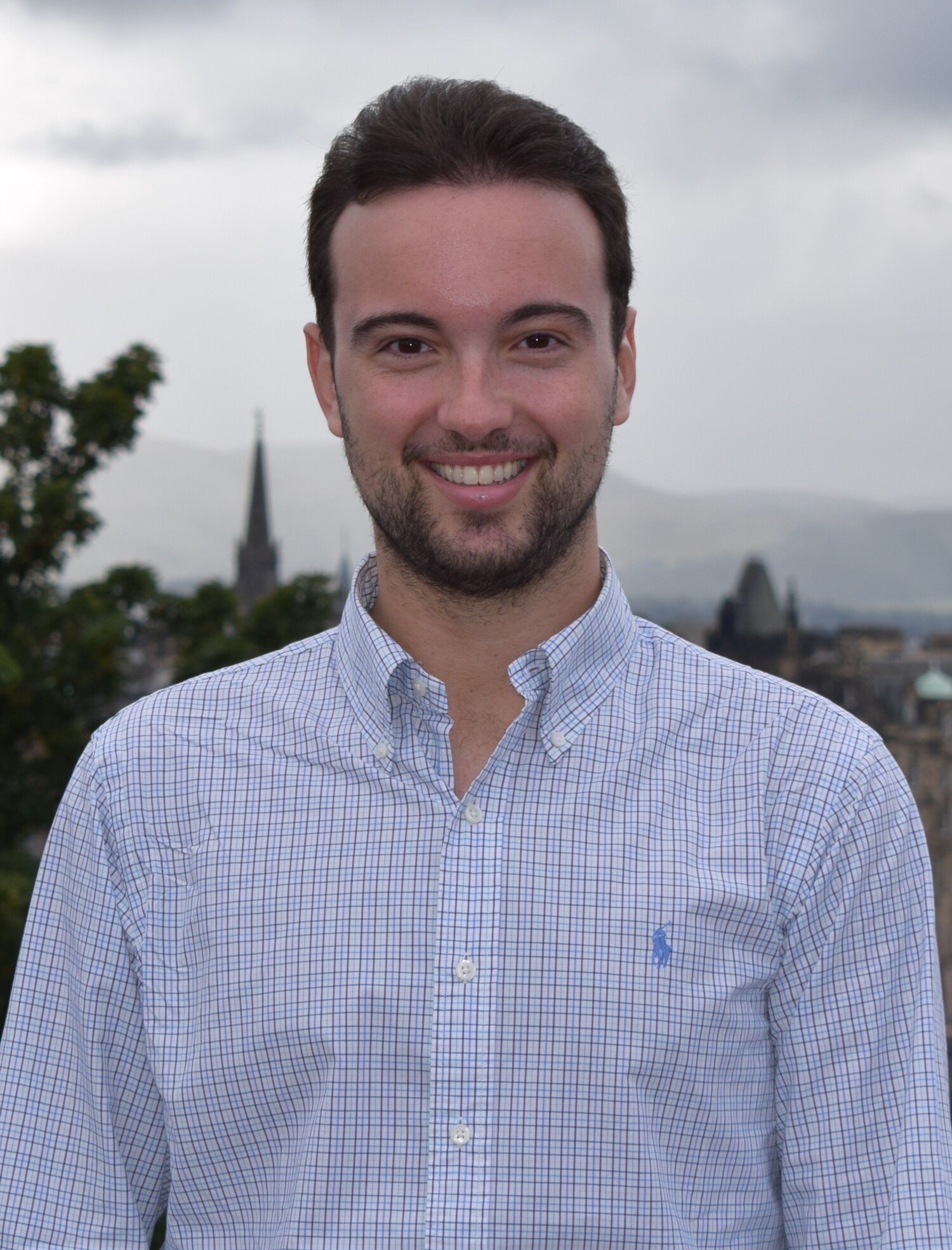
SFRR-E Young Investigator Award 2023
Pablo Martí Andrés, a postdoctoral researcher in the Division, was awarded the SFRR-E Young Investigator Award in June 2023 in Vienna. The award is bestowed annually by the European Society for Free Radical Research in recognition of extraordinary scientific achievements in the field of free radical research. Pablo presented his work entitled "TRP14 is the cellular cystine reductase and also reduces cysteinylated proteins" during the annual meeting of the Society for Free Radical Research held in Vienna under the motto "Redox Biology in Translation".
In his work, Pablo showed for the first time that TRP14 is the rate-limiting enzyme catalyzing the reduction of cystine to cysteine in the cell, a critical step for the further utilization of cysteine in key processes such as the synthesis of proteins or glutathione. Furthermore, he showed that TRP14 plays a role in signaling through the regulation of protein cysteinylation, and TRP14 knockout rendered paradoxically beneficial in a proteostatic stress model in C. elegans, and in an acute pancreatitis model in mice, due to the upregulation of the transsulfuration pathway and Nrf2-driven activation of different antioxidant pathways.
For more information, visit the SFRR-E website.
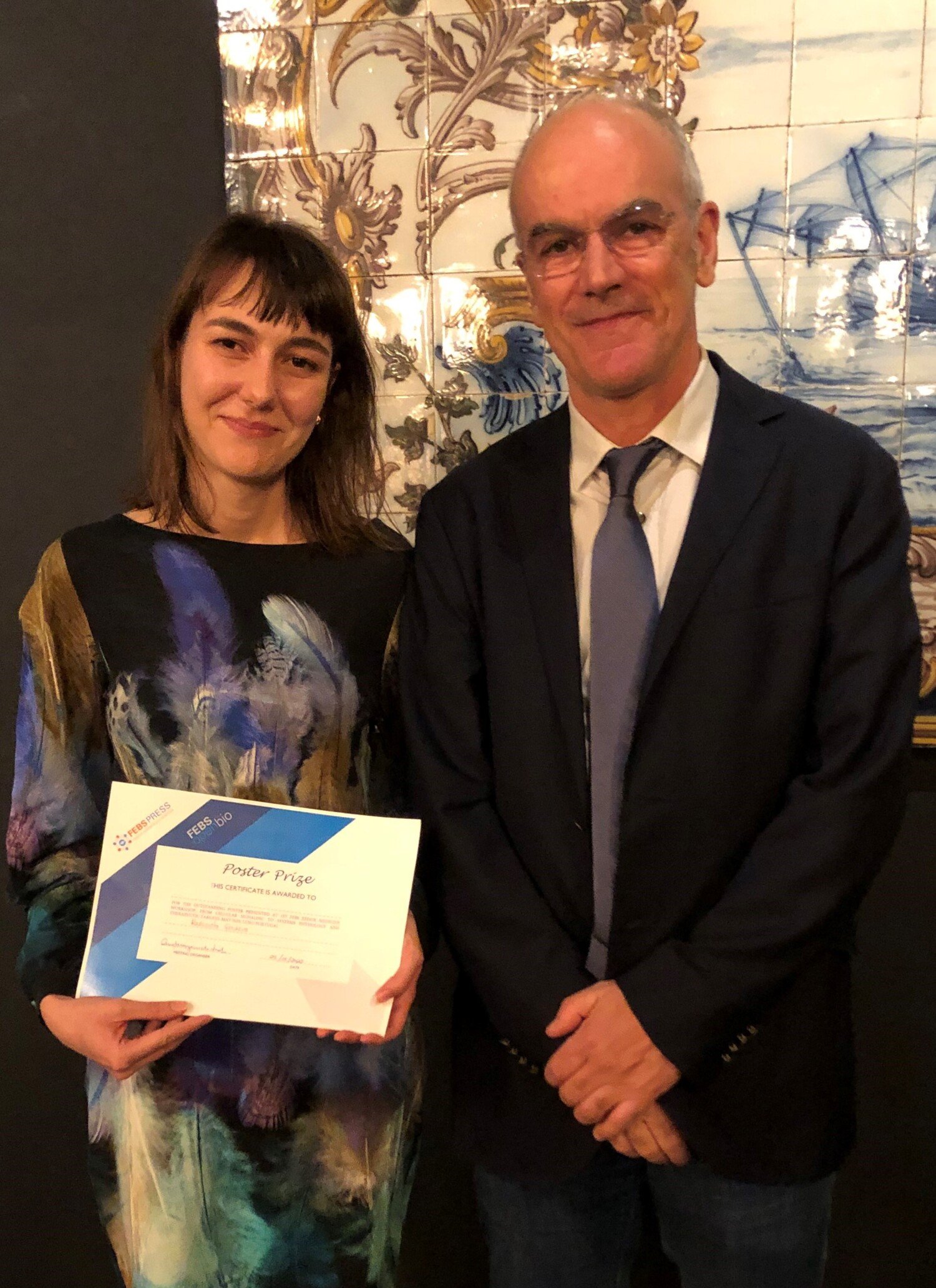
FEBS Open Bio poster prize
Radosveta Gencheva, a Ph.D. student in the Division, has been awarded the FEBS Open Bio poster prize for best poster presentation at the 2023 FEBS Workshop in Portugal, Redox Medicine: From Cellular Signaling To Systems Physiology and Therapeutic Targets. Radosveta’s poster, entitled "Cytotoxicity Mechanisms of Short-Term Exposure to Thioredoxin Reductase Inhibitors", detailed her latest results regarding the cellular mechanisms of action of several TrxR inhibitors, including TRi-1 and auranofin. Her main aim centers around furthering the therapeutic potential of TRi-1 by increasing the understanding of its cytotoxicity mechanisms.
For further information, visit the FEBS website.
